What is an Orthodox Jew?
Visitors who come to Israel (especially for the first time) are fascinated by many things about the country - the landscapes, the food, the warmth and hospitality of locals…the list goes on. Something else they’re also fascinated by is the fact that Israel is a country based on Jewish traditions, customs, and laws.
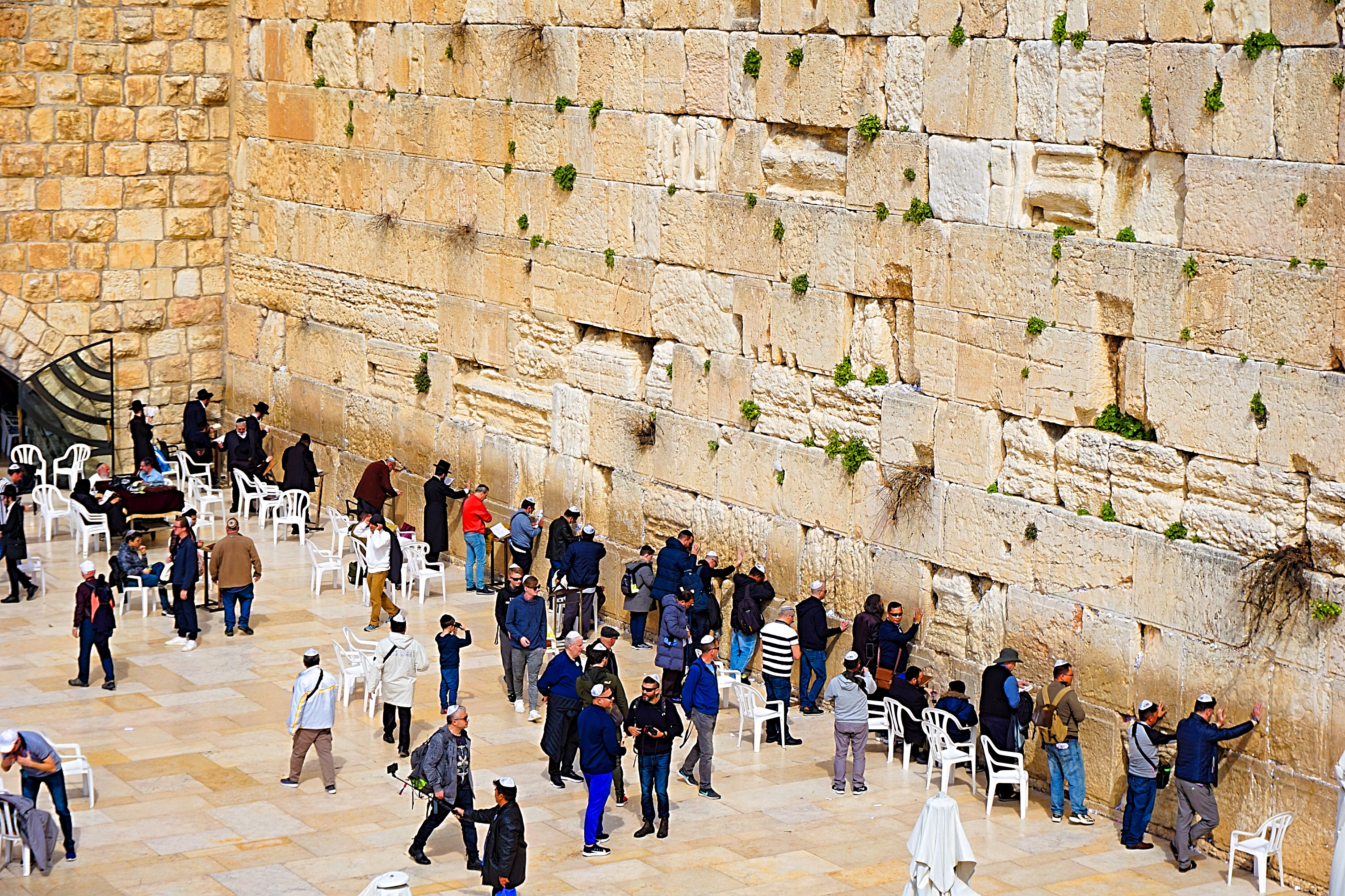
People praying at the Western Wall, Jerusalem. Photo by Ondrej Bocek on Unsplash
"You Don't Need to Believe in God to be a Jew…"
The calendar is based around Jewish festivals, the main language spoken is Hebrew and half the world’s Jewish population lives here. Visiting holy Jewish sites in Israel, it’s hard not to feel it. But what many don’t understand is that Judaism in Israel (and the world) means different things to different Jews. Some believe in God, and others don’t (“I’m a Jewish atheist” they’ll tell you). Some are essentially traditional, taking comfort in the rituals they learned as children.
One Size Doesn’t Fit All
Of those who do believe, there’s a wide spectrum, in terms of their practices…ranging from traditional “candle lighting” on Friday evening and celebrating Jewish holidays to strict adherence to Jewish law in every single aspect of their daily lives. Today, we’re looking at Orthodox Jews, which is an umbrella term for the many sub-groups within it.
We’ll try and answer the most popular questions asked, such as “What do Orthodox Jews believe?, “Why do Orthodox Jewish women wear wigs?”, “Why do Orthodox Jews only eat certain foods?” and a few more. Besides, we’ll look at their history, traditions, and even the way they are coping with change in the modern world. In short, we’ll try and make this very complicated subject a little bit easier to grasp. Interested? Then read on…
What Do Orthodox Jews Believe?
Orthodox Jews believe in a strict interpretation of Jewish law (‘halacha’ in Hebrew) which they think is grounded in the Torah (the first five books of the Hebrew Bible), both oral and written, and the revelation made to Moses by God on Mount Sinai.
Something that’s important to state here is that Orthodox Jews are not one group - rather many sub-groups. Arguments rage between them at times, as to how strict interpretation of Jewish law should be. However, they do all adhere to certain core beliefs.
As said before, there is a central belief that the Torah was revealed to Moses by God on Mount Sinai who, in turn, transmitted it to Joshua and the Elders. Since then, they believe, the Torah has been passed down in an unbroken chain to the present day. At Mount Sinai, the Jewish people entered into a covenantal relationship with God. This meant, effectively, that God was promising protection to the Israelites if they obeyed the Ten Commandments he had given them. ‘
Torah min HaShamayim’ - they believe that this revelation to Moses was a divine event and that the entire text is the literal word of God. God is one and indivisible, the sole creator, first and last (according to the Principles of Maimonides, a 12th-century rabbi and scholar who wrote ‘The Guide for the Perplexed’).
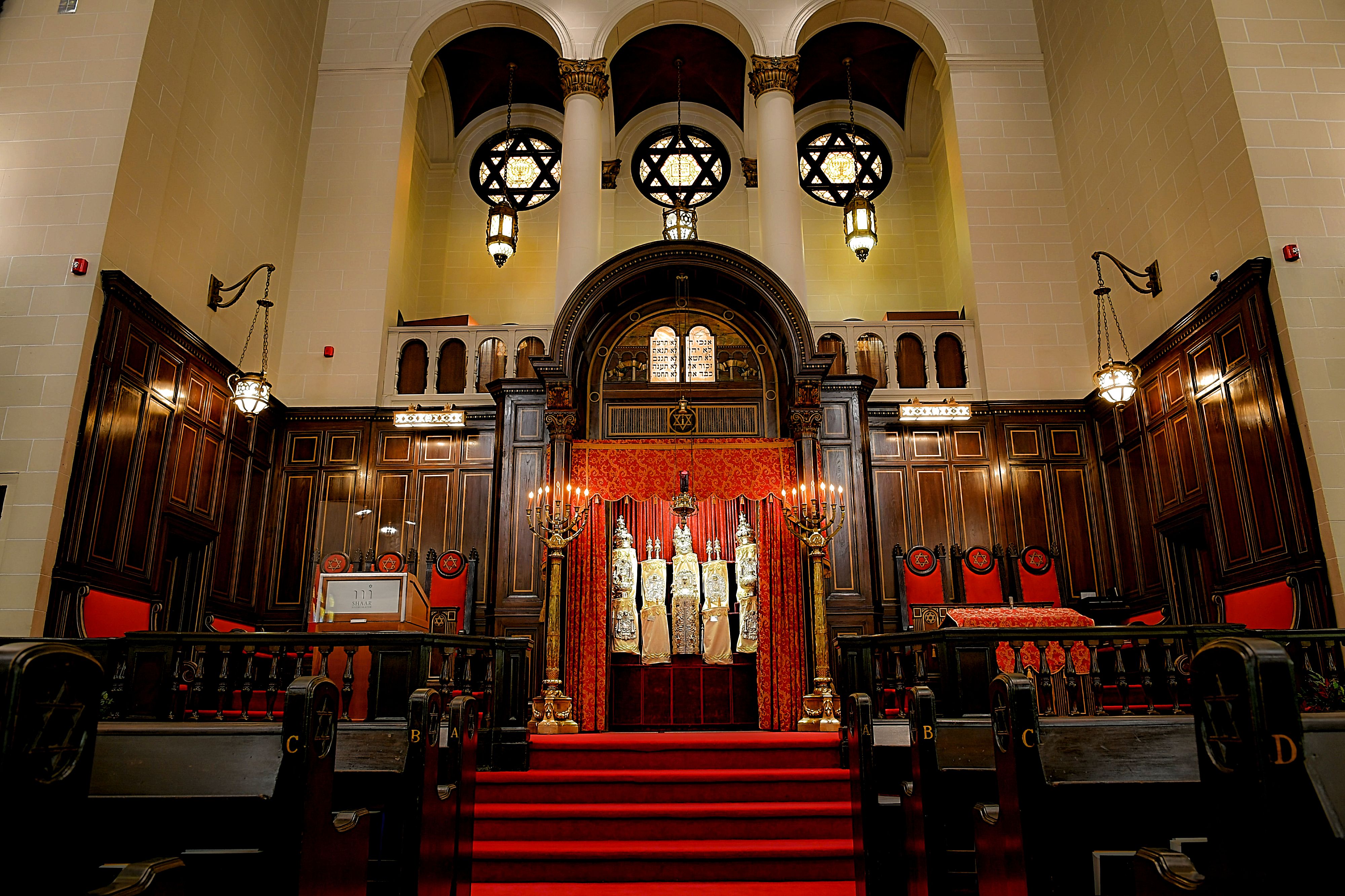
The bimah in a synagogue. Photo by Lainie Berger on Unsplash
God cannot be subdivided - Jews do not believe in the Trinity (the Father, the Son, and the Holy Ghost) and this is something that sets them apart from Christians, theologically speaking. They do believe in a future Messiah, who will be from the line of King David and will restore the Third Temple.Jews do not believe Jesus was the Messiah - their monotheistic outlook means that they cannot accept Jesus as a deity. Of course, Jews do believe Jesus existed - they just do not believe he was the Son of God, and that he died to save the world. However, more modern Orthodox interpretations of Jesus are a little more positive - especially from rabbis such as Irving Greenberg and Jonathan Sacks. Indeed, Rabbi Greenberg theorised that Jesus could be a Messiah, just not the Messiah.
Jews do not believe in the concept of salvation because they do not believe people are born in a state of sin. Judaism should be practiced within a community. For example, Jewish sacred texts and prayer books often use ‘we’ and ‘our’ and Jews pray in groups of not less than ten (a minyan). On Yom Kippur, the holiest day of the Jewish year, Jews repeat verses that ask for forgiveness as a people, not as individuals.
Judaism is a faith of action rather than belief - deeds count far more than words. For many Jews, this includes a belief in ‘tikkun olam’ (in Hebrew 'repairing the world’) which involves contributing to the betterment of your surroundings and fellow humans. This may well be why Jews focus far more on the here-and-now than other religious groups. Jews believe in World to Come (Ha Olam Haba in Hebrew) but have no clear idea, theologically, of what it might entail.
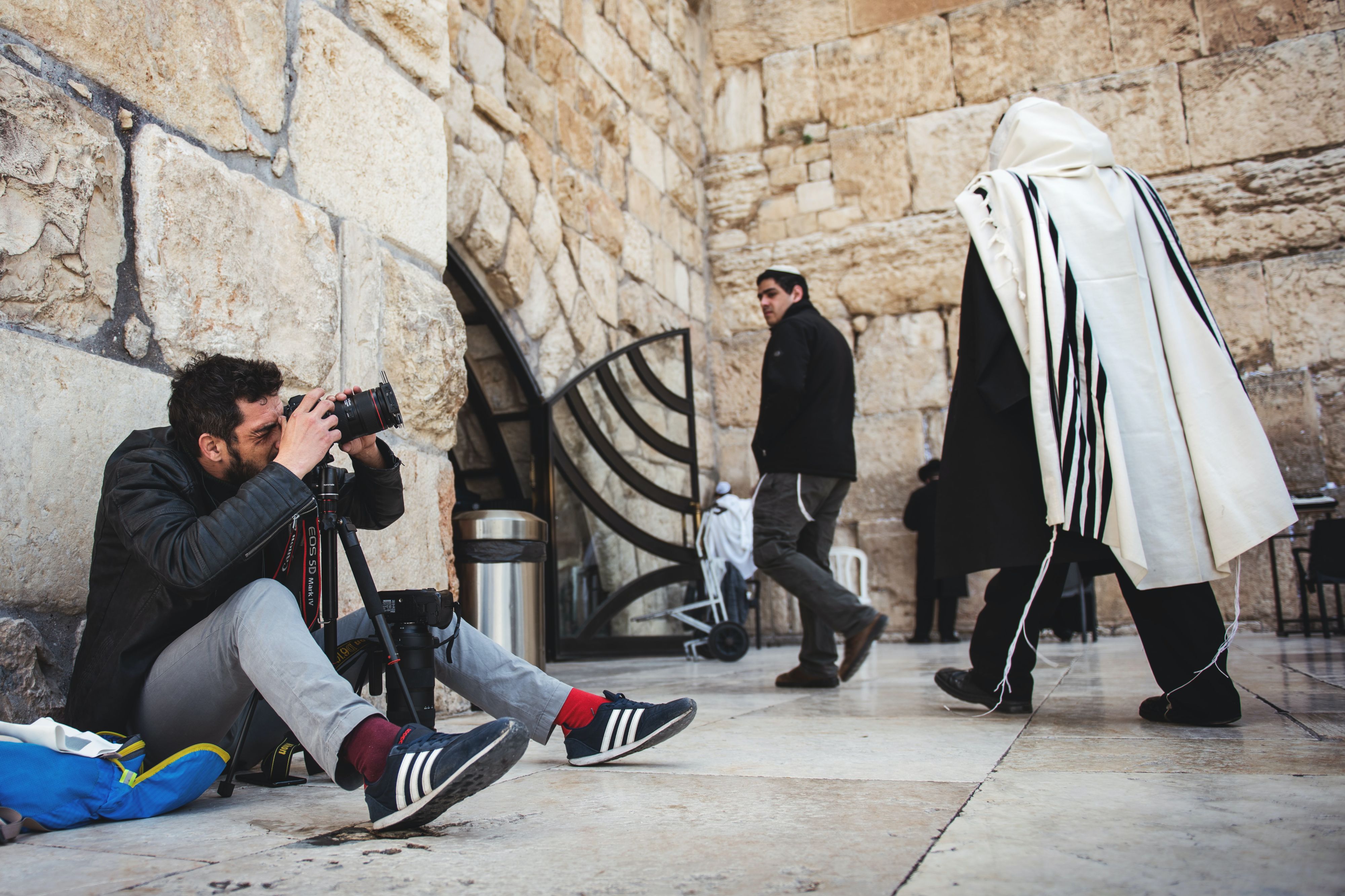
Photographer at the Wailing Wall, Jerusalem. Photo by Tim Mossholder on Unsplash
The History of Orthodox Judaism
Orthodox Judaism began in Eastern Europe, in the early 18th century, primarily as a reaction to Reform Judaism. It leaned towards a more traditional approach to Jewish law (as opposed to the Jewish liberalism of the time, which rejected the divine origins of the Torah and argued that obligatory ritual observance was unnecessary). As a result, the term ‘Orthodox’ was taken up by Jews who wanted to show that they were faithful to ritual and tradition, and unwilling to ‘modernize’ their beliefs.
That idea still remains true today, with arguments continuing to rage between Orthodox Jews (both in Israel and the diaspora) and traditional/reform Jews, who argue that Judaism needs to be more flexible and adaptable, to deal with the challenges of the secular world. Some of the biggest disputes revolve around ancient Jewish customs - such as circumcision of infant boys, dietary laws, and the biblical prohibition against intermarriage. For Orthodox Jews, these laws are non-negotiable - they are the cornerstone of their faith.
Laws, Customs and Traditions
Kashrut - keeping kosher is an essential part of an orthodox Jew’s daily life. The dietary laws prohibit the mixing of milk and meat (quoting a passage in the Book of Deuteronomy) and other foods such as pork and shellfish are strictly forbidden. Orthodox Jews also use two sets of plates and cutlery in the home (some even insist on two sinks and two ovens!)
Shabbat - one of the central tenets of the Orthodox Jewish faith is keeping Shabbat. This means that from Friday at dusk until Saturday night, no form of work can be undertaken. There is a prohibition on using electricity (phones, TVs, computers are switched off and cars sit idle in the garage), making Friday night blessings throughout the evening, and attending prayer services.
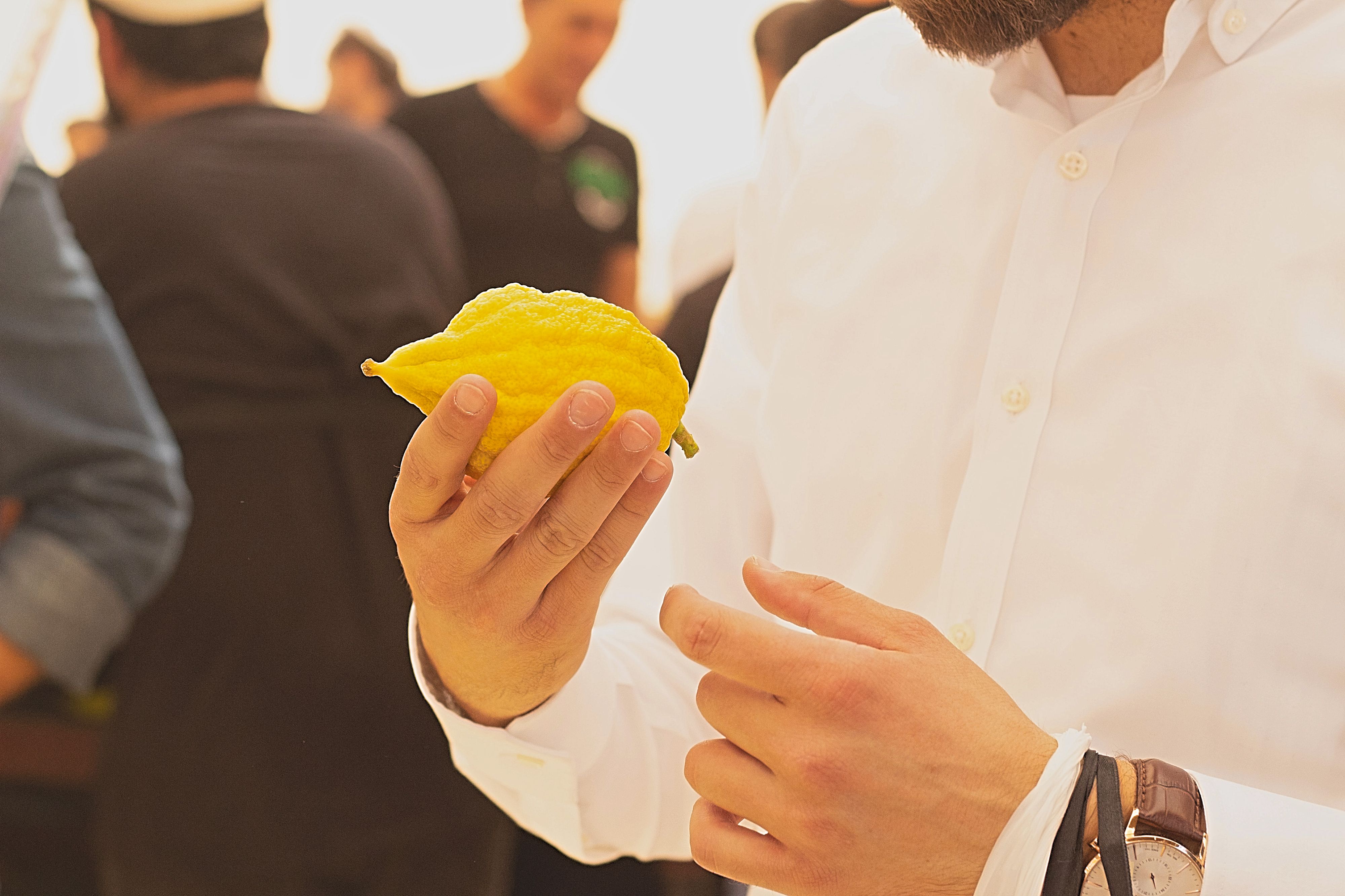
A Jewish man choosing etrog (citron) for the holiday of Sukkot. Photo by Esther Wechsler on Unsplash
Prayer and study - many Orthodox Jews pray 3 times each day (morning, afternoon, and evening) and all Orthodox Jews place great value on religious learning. They will study the Hebrew Bible (to varying levels) and the rabbinical commentaries that accompany them, as well as send their children to Jewish day schools and, if living in the diaspora, on summer trips to Israel.Dress - modern Orthodox Jews cannot be easily differentiated from the general public (apart from the ‘kippah’ that they wear on their head) but ultra-Orthodox Jews are easily identifiable in their attire. Men wear large fur hats (‘shtreimels’) and long black overcoats (‘kapoteh”). This dress was worn by their forefathers, in Eastern Europe, long ago and they continue to wear it as a sign of humility and respect.
Women are expected to dress modestly, with no bare arms and skirts below the knee. Some Orthodox women also choose not to wear jeans/pants). Fun fact: shtreimels come in all shapes and sizes, according to the particular sub-sect e.g. wide and velvet indicates a Hungarian Hassid; a rounded felt hat denotes a Gur Hasid and a fedora usually sits on top of a Chabad devotee.
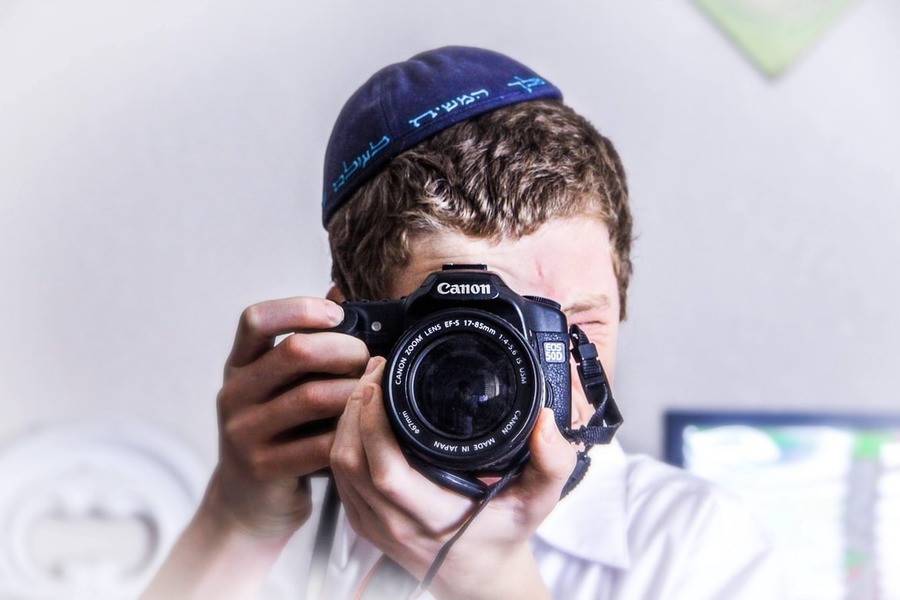
A Jewish man holding Canon. Photo by Fotoz on Unsplash
Modesty and Purity
“Why do Orthodox women wear wigs?” is a question often asked, and the answer is that they consider it to be an act of tremendous modesty (‘tzniut’). The ‘sheitel’ as it is called, is worn by married women, who believe that their hair is a beautiful and special part of themselves that only their husband should see.
Married women also attend a ritual bath each month (‘mikvah’) which is designed specifically so that they can purify themselves. In the two weeks before immersion in the mikvah, the man and wife do not have sexual relations but after she has visited the ritual bath, marital relations can resume.
In mainstream Orthodox Judaism, men and women will mix both in daily life and at communal Jewish events (although not at prayer, where they sit separately). However, the more Orthodox sects generally discourage such mingling (whether it be separate school systems, segregated musical concerts, and even no mixed dancing at weddings).
In some instances, a girl and boy will only have met two or three times before their marriage is arranged by their families - which means that on their wedding day they may not have ever held hands or kissed, let alone had sex.
Haredim walk toward the Jaffa Gate into the Old City of Jerusalem. Photo by Levi Meir Clancy on Unsplash
Different Kinds of Orthodox Judaism
Modern Orthodox - Modern Orthodox Judaism is a philosophy that strives to combine adherence to Jewish law with life in a modern, secular world. Modern Orthodox Jews (both in Israel and abroad) keep biblical commandments (observing Shabbat, the dietary laws, praying regularly at synagogue ) and usually raise their children with this kind of identity, as a way of continuing their heritage.
However, modern Orthodox Jews are also a part of the 21st century and enjoy many of its benefits. They will use the latest technology, watch Netflix, socialize with people from other religions and cultures, and travel widely. Whilst they are knowledgeable in matters of Jewish history and law, they also partake in secular education, embracing both the humanities and sciences. The result is that they are well represented in today’s professions - from law and medicine to business and the arts.
Open Orthodox - in recent years, the term ‘Open Orthodox’ has become a point of interest, essentially referring to a less ‘rigid’ kind of Orthodoxy. Whilst open Orthodox Jews, like modern Jews, believe that the Torah was given to Moses, by God, on Mount Sinai, they support a greater role for women in synagogues/prayer and aim to be inclusive, non-judgmental, and intellectually rigorous.
Religious Zionists - referred to as ‘dati leumi’ (religious nationalists) are Orthodox Jews in Israel who keep ritual Jewish law but are also strong proponents of Zionism.
A Jewish man at the Tower of David, Jerusalem. Photo by Joshua Sukoff on Unsplash
Haredim - in a nutshell, this term refers to Jews who are more strict about their observance than most Orthodox Jews. Also referred to as ‘ultra Orthodox’ (by other Jews) their motto is ‘change nothing’ and this goes for almost every aspect of their lives! As a result of this isolationist approach, Haredi Jews have very little contact with the outside world.In Israel, many Haredi Jews live in tight-knit communities such as Mea Shearim in Jerusalem and Bnei Brak (close to Tel Aviv). Most of them speak Yiddish instead of Hebrew (Yiddish was, historically, the language of the Jews in Poland), wear clothes that modern people find strange (see ‘customs’ above), and generally do not mix either with non-Jews or Jews they feel are not sufficiently pious.
Haredi Jews do not have televisions in their home, the internet is always forbidden to children, and cellphones are discouraged. They have large families - often as many as 12 children - and birth control is often forbidden by their rabbis. Because they have had no secular education, they do not work in professions but are more likely to be found in business and the diamond industry.
Most Haredi men consider Torah study to be their primary purpose (many regard it as more important than earning money) and the majority do not recognize the establishment of the state of Israel, since it was established by pioneers and not God). Some even openly describe themselves as ‘anti-Zionist’, whilst living in Israel! Some of the many Haredi sub-sects include Bobov, Satmar, Chabad Lubavitch, and Spinka. Three of the most well-known are:
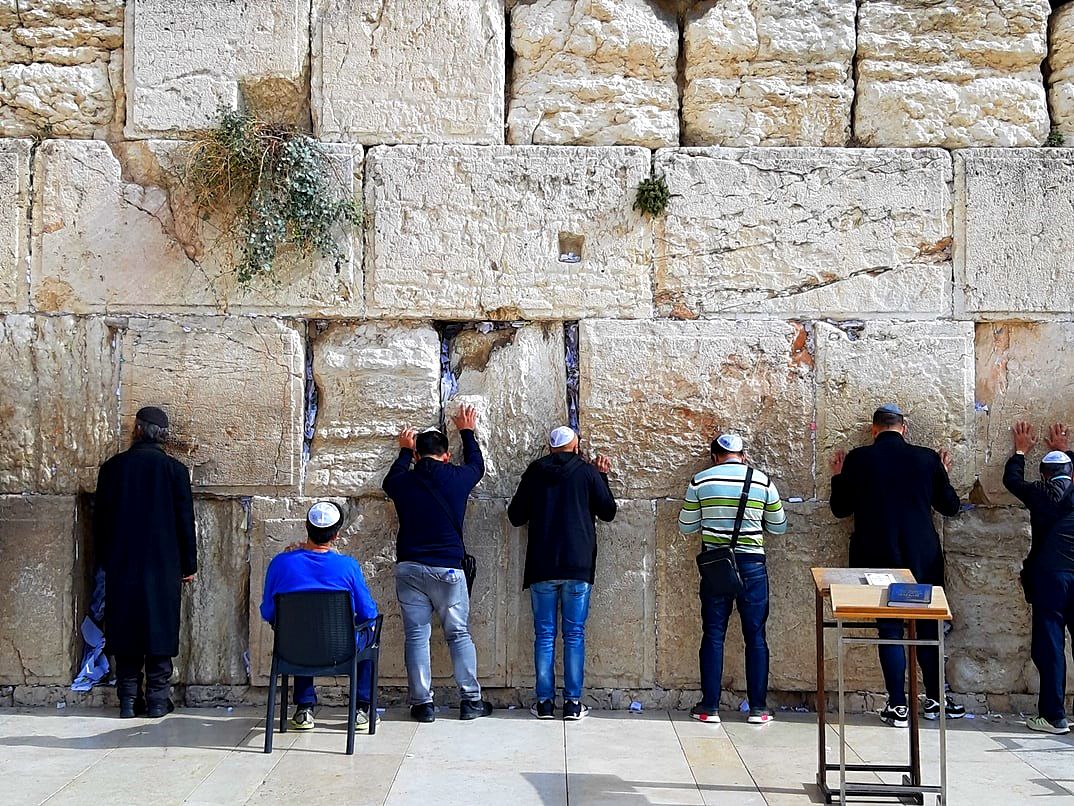
Jewish men praying at the Western Wall, Jerusalem. Photo by Thomas Vogel on Unsplash
Hasidic - broadly speaking, Hasidic Jews are a subset of Haredi Jews. They place a unique emphasis on the traditions of their forefathers in Eastern Europe (the ‘Ashkenazim’) and are extremely fraternal - men and boys spend a great deal of time together at synagogue. They have a reputation for emotional and spontaneous singing and dancing at public Jewish gatherings (taking the view that Judaism should be about joy) and adhere to their leaders (Rebbes) at all times.Litvaks - Litvaks hail from Lithuania and make up about a third of the ultra-orthodox population in Israel. Historically, they were recognized for their intellectual prowess and today they are truly dedicated to Torah study. The stereotypical ‘Litvak’ is stubborn, skeptical, and critical! Even today, the popular conception of a Litvak is one who is well-educated but a bit of a cold fish!
Sephardim - In Israel, the Sephardic ultra-orthodox are a growing community. Of Middle Eastern origin, they are represented by their own political party, Shas (a Hebrew acronym for Sephardi Torah Guardians) and the main difference between them and the Ashkenazi Haredim is that they follow the rulings of their own rabbis, which are rooted in the traditions of Jews who once lived in the Islamic world. When it comes to support for the state of Israel, they are definitely less hostile than their counterparts.
Orthodox Judaism Today
Today, Orthodox Jews live not just in Israel but in Europe, both North and South America, Australia, and South Africa. The majority would call themselves ‘modern orthodox’ (see above) but there are small communities of ultra-orthodox Jews, the most prominent of which are in parts of Israel, Crown Heights, and Borough Park in New York and Stamford Hill, in London.
We hope this brief introduction has made things a bit clearer for you and if you’re interested in seeing an area such as Mea Shearim, in Jerusalem, why not book a private Jerusalem tour with us, which can be customized to your needs? Looking for a Jewish Tour package, or a Private Jewish Tour? Then feel free to contact us.
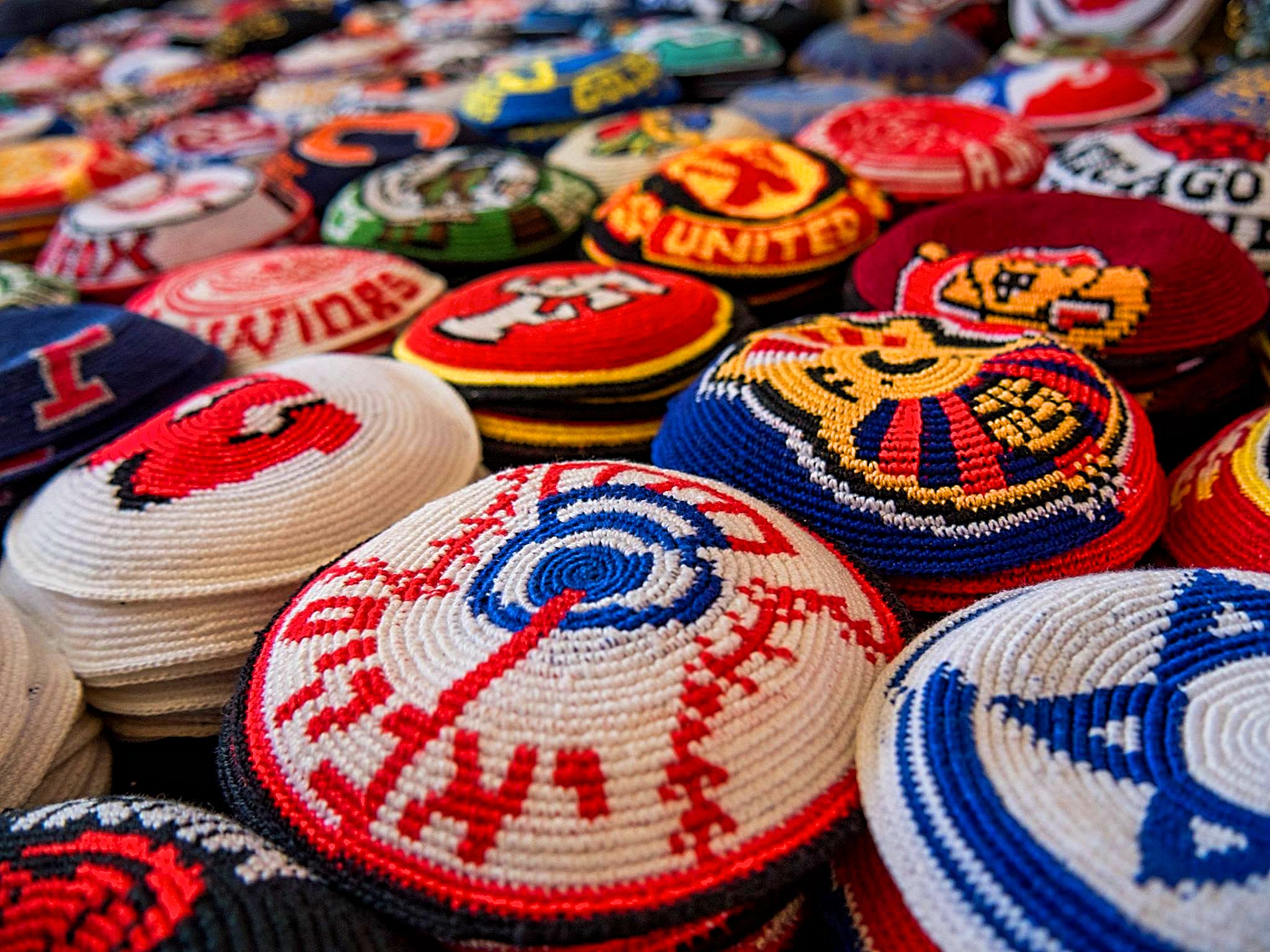
Kippahs on sale in Safed, Israel. Photo credit: © Dmitry Mishin
 Login / Register
Login / Register
 Contact Us
Contact Us
 Certificate of Excellence
Certificate of Excellence Guaranteed Departure
Guaranteed Departure Low Prices Guaranteed
Low Prices Guaranteed 24/7 Support
24/7 Support




